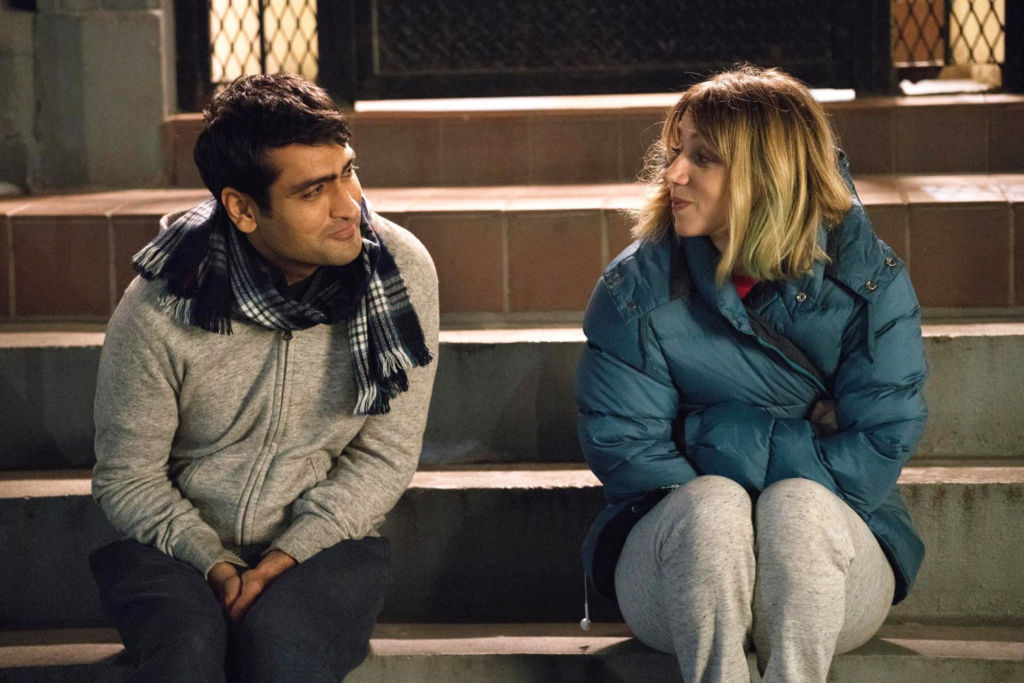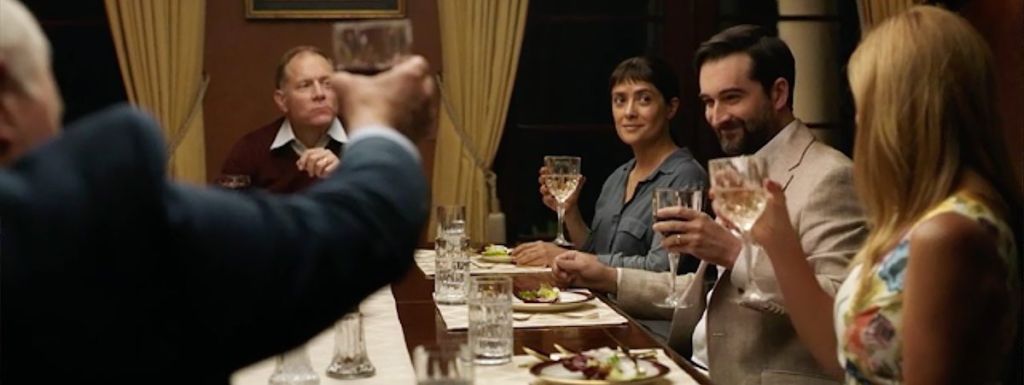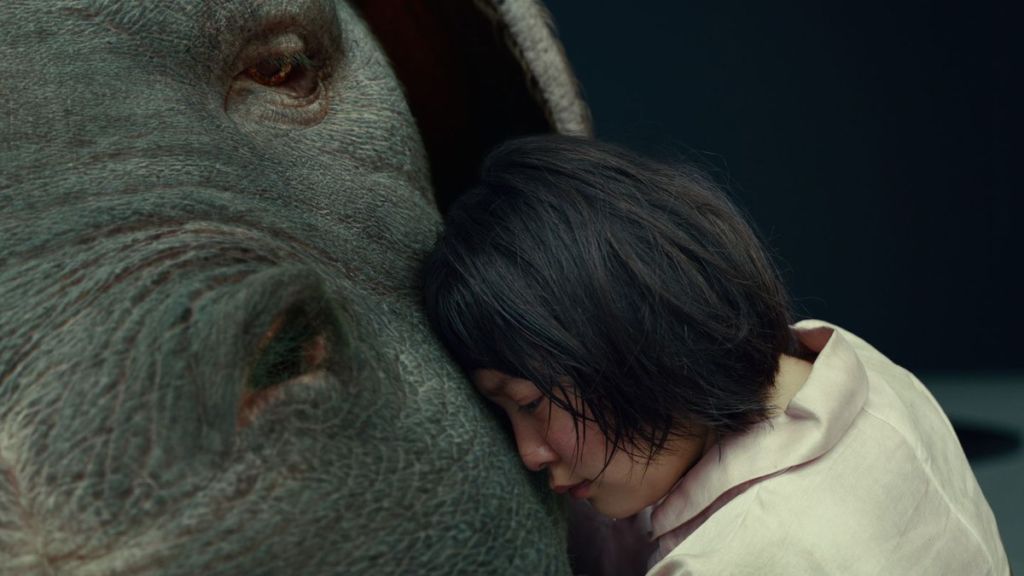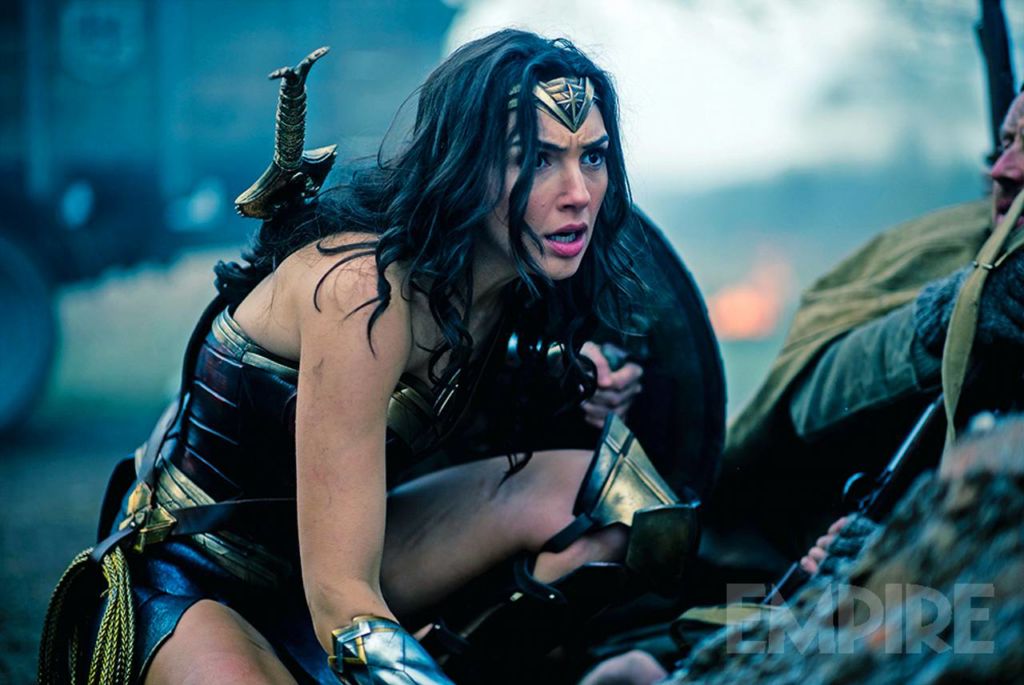‘Atomic Blonde’ is super queer
 Twenty years ago, Rupert Everett, fresh off his star making turn in My Best Friend’s Wedding, lobbied to become the star of a gay superspy franchise. It never happened despite Everett seemingly being born to play such a role. Neither Hollywood financiers nor the action film ticket-buyers were quite ready for such a character, or at least not ready enough to support a big budget tentpole film a la James Bond.
Twenty years ago, Rupert Everett, fresh off his star making turn in My Best Friend’s Wedding, lobbied to become the star of a gay superspy franchise. It never happened despite Everett seemingly being born to play such a role. Neither Hollywood financiers nor the action film ticket-buyers were quite ready for such a character, or at least not ready enough to support a big budget tentpole film a la James Bond.
Nowadays, it’d be possible to do such a thing on Netflix or Amazon – the super-queer sci-fi action show Sense8 lasted two seasons, and something much less expensive could last longer – but it’s still hard to imagine a queer Jason Bourne being made. But a queer Lara Croft? Yes. Women who have sex with women, especially cisgender and bisexual ones, are a much easier sell for multiplexes, the audience for which is largely young and male. And the folks who gave Atomic Blonde its $30 million budget, much of it for Charlize Theron as the lead, probably had them in mind. Atomic Blonde is a landmark as a super-queer action film, but it’s also a perfectly fine action film.

The film takes place in Berlin in the days leading up to the fall of the Berlin Wall. A Soviet spy killed a British spy, stole the list of every clandestine agent alive, and then went rogue, looking to sell the list on the Black Market. MI6 sends Lorraine Broughton (Theron) to Berlin to help their station chief David Percival (James McAvoy) get the list, which is also being pursued by the Soviets and the French. Immediately, things go awry, and she is forced to fight her way through West and East Berlin while having a very James Bondian romance with a French agent named Delphine (Sofia Boutella) and figuring out which of her various allies is betraying her.
The plot is overly, sometimes hilariously, complex, but we’re not in the theater for spy games. We’re there to watch Charlize Theron beat people up. David Leitch, who directed John Wick, directs and choreographs fight scenes as well as any living director, and Theron and her stunt double earn their salaries pounding the bad guys into a pulp and getting their faces pummeled. (Theron chipped a number of teeth during filming). The fights and much of the dramatic action are highly stylized, with searing colors and plenty of chiaroscuro, nodding both to film noir and the film’s source material The Coldest City.
It’s strongly implied that the British agent killed in the film’s first scene was once Lorraine’s lover, but the film’s only sex scenes are between Lorraine and Delphine. And their relationship is the only one in the film that has any kind of emotional resonance. With everyone else, Lorraine lies, manipulates, interrogates and demands; with Delphine, it is said, she tells the truth. Lorraine’s only authentic connection is with a woman, and for a film with Atomic Blonde’s visibility and genre, that’s a radical thing. And the publicity campaign doesn’t shy from this, giving Lorraine and Delphine’s sex scene prominent placement in the widely watched trailer.
Unfortunately, Atomic Blonde relies on a few deeply un-radical tropes of queer films, particularly those about women. And the script for the film doesn’t utilize the film’s extraordinary cast well enough. Theron is as gorgeous and charismatic as ever, but Lorraine needed a more variable affect and maybe a believable back story. McAvoy’s Percival is a fun, ribald and amoral agent, but he’s never given any motivation to explain his behavior. Similarly, both John Goodman and Toby Jones have rather thankless roles.
Each character propels the plot, but they provide us with no reason to care much about the list, the Berlin Wall or who will win in the end. An action film lacking depth of meaning and emotion isn’t all that surprising, and I had a great time nonetheless. I do hope there will be a sequel. I want to learn more about Lorraine, and I want to watch her kick a lot of ass and then get the girl in the end.
Atomic Blonde
Directed by David Leitch
Written by Kurt Johnstad
Starring Charlize Theron, James McAvoy and Sofia Boutella
Rated R
Originally published in LGBT Weekly
 Kumail meets Emily when she sort-of-heckles his standup comedy performance that is centered on his immigration experience. He asks if anyone else is from Pakistan, and Emily, a young blonde woman from North Carolina, woops in response. He joshingly admonishes her, she wittily snaps back, and he hits on her after the show. She makes fun and of his come-on line, claims she’s not interested in dating, and then they fall for each other.
Kumail meets Emily when she sort-of-heckles his standup comedy performance that is centered on his immigration experience. He asks if anyone else is from Pakistan, and Emily, a young blonde woman from North Carolina, woops in response. He joshingly admonishes her, she wittily snaps back, and he hits on her after the show. She makes fun and of his come-on line, claims she’s not interested in dating, and then they fall for each other. When Miguel Arteta and Mike White started filming Beatriz at Dinner last August, I doubt they could have predicted how salient the film would be when it was released ten months later. The biting, mostly comic commentary on class, race and manners is particularly unsettling because Trump won, because what may have been written as satire a year ago is naked reality now. It’s a tragicomedy, but in our country’s current predicament, its more tragic, making the film’s bleak ending creepily logical. Arteta and White are known for their awkwardly brilliant collaborations Chuck & Buck and The Good Girl (among other things), and Beatriz, while not achieving the levels of those two films, is another affecting, often very funny cringe-fest.
When Miguel Arteta and Mike White started filming Beatriz at Dinner last August, I doubt they could have predicted how salient the film would be when it was released ten months later. The biting, mostly comic commentary on class, race and manners is particularly unsettling because Trump won, because what may have been written as satire a year ago is naked reality now. It’s a tragicomedy, but in our country’s current predicament, its more tragic, making the film’s bleak ending creepily logical. Arteta and White are known for their awkwardly brilliant collaborations Chuck & Buck and The Good Girl (among other things), and Beatriz, while not achieving the levels of those two films, is another affecting, often very funny cringe-fest. I think the best reason to applaud the ascendance of the Netflix and Amazon TV and film studios is their willingness to fund the ambitious projects of artists like the Wachowskis (Sens8), Jill Soloway (Transparent), and Aziz Ansari (Master of None) — and now Bong Joon Ho, who directed the insane, groundbreaking Snowpiercer, as well as the modern Korean classics Memories of Murder, Mother, and The Host. His latest, produced and distributed by Netflix, is Okja, a scathing sci-fi satire about greed, family, factory farming, and a giant mutant pig with a heart of gold. By Bong’s standards, it’s a lesser film, but better than the vast majority of films available in theaters: hilarious, sad, horrifying, poignant, and daring.
I think the best reason to applaud the ascendance of the Netflix and Amazon TV and film studios is their willingness to fund the ambitious projects of artists like the Wachowskis (Sens8), Jill Soloway (Transparent), and Aziz Ansari (Master of None) — and now Bong Joon Ho, who directed the insane, groundbreaking Snowpiercer, as well as the modern Korean classics Memories of Murder, Mother, and The Host. His latest, produced and distributed by Netflix, is Okja, a scathing sci-fi satire about greed, family, factory farming, and a giant mutant pig with a heart of gold. By Bong’s standards, it’s a lesser film, but better than the vast majority of films available in theaters: hilarious, sad, horrifying, poignant, and daring. Infamously, since Warner Bros. decided to create a crossover-heavy “universe” with its superheroes, the studio’s comic book films have been at best wrong-headed and underwhelming (Man of Steel) and at worst incompetently made and pointless (Suicide Squad). The fear that they’d screw up a Wonder Woman film after waiting decades to greenlight it was justified. Thankfully, they didn’t screw it up at all. Instead, under the direction of Patty Jenkins, Wonder Woman is the studio’s best superhero film since 2005’s The Dark Knight, perfectly cast, funny, exciting and surprisingly moving.
Infamously, since Warner Bros. decided to create a crossover-heavy “universe” with its superheroes, the studio’s comic book films have been at best wrong-headed and underwhelming (Man of Steel) and at worst incompetently made and pointless (Suicide Squad). The fear that they’d screw up a Wonder Woman film after waiting decades to greenlight it was justified. Thankfully, they didn’t screw it up at all. Instead, under the direction of Patty Jenkins, Wonder Woman is the studio’s best superhero film since 2005’s The Dark Knight, perfectly cast, funny, exciting and surprisingly moving.